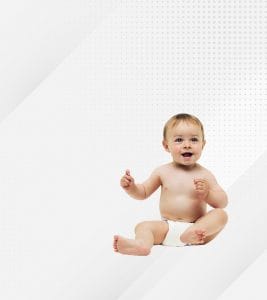5 Essential Factors to Consider When Choosing Baby Diapers
Parenting is a beautiful journey, but it comes with endless decisions—one of the most important being choosing baby diapers. The right diaper keeps your baby comfortable, prevents leaks, and makes your life easier. But with so many options on the market, how do you make the best choice? Here are five key factors every parent should consider.
Comfort and Fit

A baby’s skin is delicate, and the wrong diaper can cause irritation or discomfort. A good diaper should:
- Have a soft, breathable material to prevent rashes.
- Fit snugly around the waist and legs without being too tight.
- Allow free movement without causing chafing.
Many brands offer size guides based on weight, so always check before purchasing. Babies grow fast, so keep an eye on any marks left by the diaper—it might be time to size up!
Absorption and Leak Protection
One of the biggest concerns when choosing baby diapers is leakage. A quality diaper should:
- Absorb moisture quickly to keep the skin dry.
- Have leak-proof barriers around the legs and waist.
- Offer overnight protection for uninterrupted sleep.
Some diapers feature wetness indicators, which help parents know when it’s time for a change. This small detail can make diaper changes much easier!
Skin-Friendliness and Ingredients
Babies have sensitive skin, making it essential to check what materials and chemicals are used in a diaper. Look for:
- Hypoallergenic and fragrance-free options.
- Chlorine-free and dye-free materials to reduce irritation.
- Natural or organic alternatives if your baby has extra-sensitive skin.
Reading labels is crucial. Some diapers contain lotions or added scents that may not be suitable for all babies. When in doubt, opt for dermatologically tested products.
Ease of Use and Convenience
Between feeding, sleeping schedules, and endless cuddles, parents need diapers that are easy to use. Consider:
- Whether you prefer disposable or cloth diapers.
- The ease of putting on and taking off, especially during nighttime changes.
- Travel-friendly options that fit well in diaper bags.
If you’re constantly on the go, choosing baby diapers that are compact and easy to carry can make a big difference in your daily routine.
Environmental Impact and Cost
Many parents today are looking for eco-friendly alternatives. If sustainability is a priority, consider:
- Biodegradable diapers made from plant-based materials.
- Reusable cloth diapers to reduce waste.
- Brands that use sustainable manufacturing processes.
Cost is another major factor. While premium diapers offer excellent features, they may not fit every budget. Here’s a quick way to balance cost and quality:
- Try different brands and compare absorbency.
- Look for bulk deals or subscription discounts.
- Consider a mix of reusable and disposable diapers.
Frequently Asked Questions
How do I know if a diaper is the right size for my baby?
If the diaper leaves red marks or feels too tight, it’s time to size up. A well-fitting diaper should be snug but not restrictive.
Are cloth diapers better than disposable ones?
Both have pros and cons. Cloth diapers are eco-friendly and cost-effective in the long run, while disposables are more convenient, especially when traveling.
How often should I change my baby’s diaper?
Newborns need a change every 2-3 hours, while older babies may last longer, especially overnight. Always change a diaper immediately if it’s soiled to prevent rashes.
What should I do if my baby develops a diaper rash?
Switch to a fragrance-free diaper, apply a good diaper cream, and allow some diaper-free time to let the skin heal.
Picking the right diaper doesn’t have to be overwhelming. By focusing on comfort, absorption, skin-friendliness, convenience, and sustainability, you’ll find the perfect fit for your little one. Happy diapering

